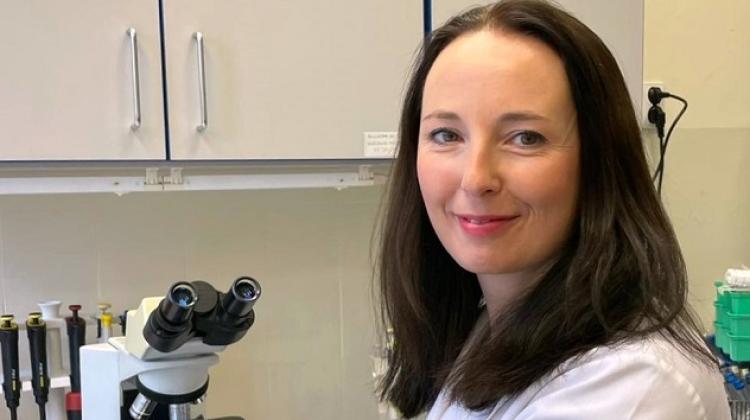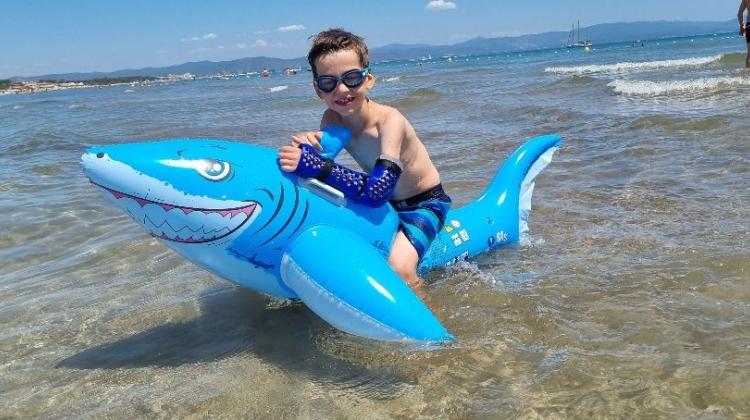Silesian scientists have developed an antibacterial material for 3D printing

Silesian scientists have developed an antibacterial material for 3D printing. With 3D printers, it can be used to create medical devices or implants, on which bacteria will not grow. The invention has recently been commercialised.
The authors of this patented solution are scientists from the Institute of Materials Science and the Institute of Chemistry of the University of Silesia, as well as the Faculty of Pharmacy with the Department of Laboratory Medicine of the Medical University of Silesia.
They deal with biocompatible, bacteriostatic and bactericidal materials. One of the solutions they are working on "is a material that can be used for rapid prototyping of medical instruments, personalized medical instruments, personalized porous implants, personalized cell culture materials - both biocompatible (non-cytotoxic) and bacteriostatic, on which bacterial film does not develop" - said Dr. Andrzej Swinarew from the Institute of Materials Science of the University of Silesia.
What does this mean for a layman? The material has antimicrobial properties, it is also resistant to high temperatures and UV radiation. Thanks to this, medical equipment will not need to be cleaned or sterilized regularly, because bacteria will not develop on the material at all - regardless of the possible damage to the equipment surface or the passage of time.
Dr. Swinarew noted that the material that the Silesian team is working on is very inexpensive and easy to produce. It also allows to make details using the incremental technique, 3D printing. "Every home builder who has a 3D printer with the right parameters - using their own printer, imagination and modelling software - will be able to create devices, hardware, details that will be bacteriostatic, biocompatible, and more importantly approved for use in the human body" - he said.
The material developed by the Silesian scientists is a response to the needs of the market. "The solution already has a commercialisation opportunity. I do not want to say too much, but a company has formed in cooperation with one of the major players on the medical market, who will implement our solution for the production of medical devices and later maybe also implants" - the scientist announced.
In his opinion, methods of obtaining items such as implants by means of spatial printing will continue to be developed. "I think this is the future of regenerative medicine - prototype implants, tailor-made for the patient (...) who gets the implant, external orthosis, stabilizer, carefully prepared for his or her physical size" - he explained.
Dr. Swinarew said that although such research is already being conducted abroad, in Poland it is carried out only in Silesia. "Virtually no one pursues such topics in Poland. In our country we do it (the University of Silesia - PAP) and the Medical University of Silesia, hence the joint patent solution. We focus more on materials and physics, while the Medical University goes more towards biology, microbiology and medicine" - noted the scientist.
Four international teams of scientists have worked on the new material. In the fall of 2016, the scientists received a Gold Medal for the method of obtaining modified polyesters, especially polycarbonate, with antimicrobial properties used in 3D printing. It was awarded the International Exhibition of Inventions in Warsaw IWIS 2016.
The developed mixture is chemically passive and resistant to atmospheric conditions. It shows good thermal stability in processing. In addition, the method of obtaining it is relatively cheap. The advantages of these modified polyesters also include improved mechanical properties compared to the starting material and low moisture absorption.
The material is very resistant to chemicals and solvents, it is dimensionally stable and resistant to abrasion and scratches. It has a low density.
The material can be used in areas such as aviation, electronics, medical technology, mechanical and automotive engineering, prototyping.
PAP - Science and Scholarship in Poland, Agnieszka Kliks-Pudlik
akp/ zan/ kap/
tr. RL
Przed dodaniem komentarza prosimy o zapoznanie z Regulaminem forum serwisu Nauka w Polsce.

















